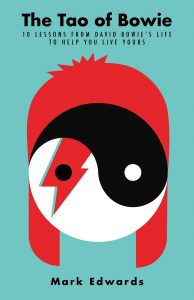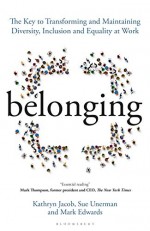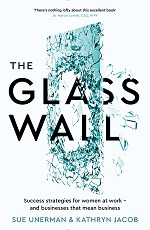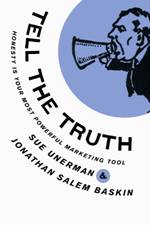 To be match fit your mental and emotional wellbeing is as crucial as your physical health.
To be match fit your mental and emotional wellbeing is as crucial as your physical health.
Recent events in the Olympics have highlighted this truth. It shouldn’t be so surprising should it?
Yet when Simone Biles – four-time Olympic gold medallist, multiple world champion and arguably the greatest gymnast of all time – withdrew from the team and all-around events at the Tokyo Olympics, it was headline news across the US and the world.
As Sam Quek, 2016 Olympic hockey medallist, speaking on BBC TV puts it mental & physical health are equally important. He added: “As the story unfolded .. I was getting more and more frustrated. I’d see these headlines popping up saying how Biles was weak, she wasn’t mentally strong enough to deal with the pressure. On social media, people were accusing her of using it as an excuse to pull out of the vault because she wasn’t performing as well. I just think its absolute nonsense. She said she wasn’t in the right mental frame of mind to go and perform well enough and that she could have caused herself some damage. Every sports person knows that if you go in half-cocked, you’re going to cause yourself an injury: none more so than in gymnastics. She has laid down a foundation for so many athletes and people around the world to say: ‘In this moment in time, inside, something didn’t feel right’. She had the bravery and the courage to pull out of the event.”
MediaCom global COO Josh Krichefski has introduced mental health allies at MediaCom to prioritise people taking care of themselves emotionally as well as physically at work, a move made doubly important by the events of the last year. It is intended to ensure that no-one is overwhelmed, and always has someone to talk to.
Yet it’s still much easier for many to say that they are sick with a tummy bug than that you cannot come to work because of the state of your mental health. Why on earth should one be more acceptable than the other? Just as you don’t always have a doctor’s note for your absence for physical health, you may not have a diagnosis of your mental health either. Though I must caveat this by acknowledging the difficulties that people with a mental health diagnosis face in the workplace are very different to being overwhelmed by stress and your emotions on a particular day.
We know from research conducted by Dynata for our book Belonging, that people who have been diagnosed with mental illness at work are subject to bias, harassment and inappropriate behaviour to a greater extent than the workforce in general. Overall 18% of workers have been diagnosed with a mental health problem, and this rises to 32% of under 25s. Of the respondents reporting mental health problems, Mind reports that 89% said that these affect their working life. We also know from extensive interviews that you don’t need to have had a mental health diagnosis to feel vulnerable and unable to work at the pace that most businesses in our sector require as business as usual.
Olympian, and chair of UK Sport Dame Katherine Grainger commented recently that there have been huge changes since the last Olympics in terms of openness. We’ve seen athletes who are clearly physically at the peak of fitness (or they would not be in Tokyo) own their mental health unfitness in a way that she says would have been unthinkable 5 years ago.
We must ensure that those changes and that openness is true for our industry too. As Ruby Wax puts it: “Your insides don’t know what your outsides do for a living”. Compassion for someone’s inability to run a marathon with a broken leg should be no different to compassion for someone’s inability to face workplace challenges with mental health issues.
We can only expect peak performance from people who we expect and encourage to really look after themselves, in every respect. We all need resilience at work and in life in general. Writing in the “Tao of Bowie,10 lessons from David Bowie’s life to help you live yours” Mark Edwards points out: “We could all use a little less suffering”.



Tired ? Take a break from yourself
Friday, September 17th, 2021Sympathy is exhausting. Empathy gives you energy.
What is sympathy?
Sympathy is feeling pity and compassion, and it’s can be exhausting.
What is empathy?
Empathy is actually feeling what someone else is feeling.
It is not imagining how someone is feeling by putting yourself in their shoes. It’s a nice thing to do of course. But it is different from real empathy. The phrase many people use is imagine walking a mile in their shoes. I heard one CMO say that he took some shoes that his customers might wear to a board meeting so that the senior management could try them on. It is a worthy thing to do, and it does take some effort. But it is not empathy.
The example I use in our book Belonging to illustrate this is of a pet cat. Pet cats like to bring their owners presents. The best way that they can show their love for their owner is to bring them a present that they themselves would love to receive. Usually this is a dead bird or a dead mouse. It is of course usually received with horror by the recipient. This is a superb example of a lack of real empathy.
A cat with empathy would never bring a present like this. (A cat with empathy would clean your house for you, or bring you new trainers.)
Empathy is really stepping into the skin of the other person, into their head, its close to being possessed temporarily by them. And that’s why it is energizing, because the real act of empathy is taking a brief holiday from being yourself, and your natural self-obsession.
American writer David Foster Wallace said: ““Everything in my own immediate experience supports my deep belief that I am the absolute centre of the universe, the realest, most vivid and important person in existence.”
To stop doing this even for a few moments gives you a break from yourself. And a break as many of us appreciate even more this year when we have been not just working from home, but living at work, is as good as a rest.
We have a technique that we use at MediaCom for this in particular – Method Insight. Named (by my colleague Steve Gladdis) for the technique that actor Robert de Niro famously used to prepare for his Oscar nominated role in Scorsese’s film Taxi Driver. In order to get into the right mindset to play Travis Bickle for Taxi Driver, DeNiro literally took to the New York streets in a yellow cab. For two weeks prior to shooting, DeNiro trawled the streets day and night, developing a feel for life from the driver’s seat in the seedier areas of New York. It was essential preparation for his job.
This was not only an arduous undertaking that showed off the star’s willingness to put in the hard yards required to achieve a great performance, but it was also downright dangerous. The areas around Precinct 75, where he would patrol, were notorious crime hubs and, often, that would spill from the streets into the backseat.
De Niro says: “I look at it from the character’s point of view”. Not his own, but really inhabiting another person.
How does this apply to planning?
We ask every planner to live the experience of the business they work on – this might mean going on a shopping expedition with the target audience. It might mean delivering groceries; delivering sofas; spending time with sales leads and at call centres. We ask them to be conscious and aware of paying attention to what they observe and not consider it from their own point of view but by inhabiting the point of view of others. From this comes the insight that leads to great work.
Really being open to other peoples lived experiences, not seeing them from an ad agency bubble, allows you to have real empathy and not just sympathy with the brand and the buyers. It’s essential preparation for the job.
Sympathy is tiring.
Empathy gives you energy.
It’s as if you are going on holiday from yourself.
Posted in MediaComment | No Comments »